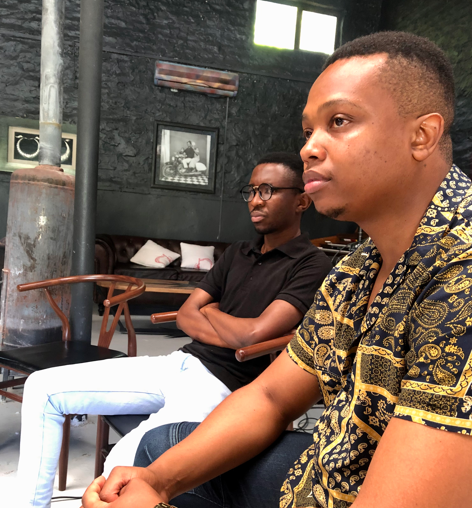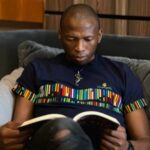Three years ago today, September 12, 2022, the High Court of Lesotho delivered a judgment that would become a cornerstone of our constitutional democracy. In Boloetse and Tuke v. His Majesty The King and Others, the full bench, led by Chief Justice Sakoane Sakoane, did not merely settle a dispute but also erected a formidable barrier against the arbitrary exercise of power and redefined the role of the citizen in a constitutional state.
On this anniversary, the judgment stands not as a relic, but as a living, breathing doctrine that continues to shape the balance of power in the Kingdom of Lesotho.
The case emerged from a moment of high political drama. In the twilight of the 10th Parliament’s term in July 2022, the government found itself racing against the clock. Two flagship bills – the Eleventh Amendment to the Constitution Bill and the National Assembly Electoral Amendment Bill, products of the long-awaited national reforms process – remained unpassed.
Faced with this self-inflicted legislative failure, the executive branch reached for the most extreme tool in the constitutional toolbox.
Acting on the advice of the Council of State, the then Prime Minister, Dr Moeketsi Majoro, issued a proclamation declaring that the failure to pass these bills constituted a “public emergency which threaten[ed] the life of the nation” under Section 23 of the Constitution. In swift succession, His Majesty King Letsie III, again on the Council’s advice, recalled the already-dissolved Parliament under Section 84(2) with a singular directive: to reconvene and pass the two bills.
This move was widely perceived as a cynical attempt to use a constitutional nuclear option to solve a political problem. In stepped two private citizens, Kananelo Boloetse and Lintle Tuke. Their challenge was met with a predictable first line of defence from the state: a challenge to their locus standi, their right to even bring the case to court.
Part I: The citizen as constitutional sentinel
The government’s argument was a classic one. It argued that the applicants had not suffered any specific, personal injury different from that of the general public. Therefore, they had no standing to sue. The Court’s rejection of this argument was not just a legal technicality but was a philosophical reorientation of constitutional governance.
Chief Justice Sakoane’s judgment drew a critical distinction that will forever inform public interest litigation in Lesotho: the difference between a “Bill of Rights review” (where an individual claims a personal right is infringed) and a “rule of law review.” The latter, the Court held, is founded on Section 2 of the Constitution, which declares it the supreme law of the land. When the government violates the Constitution itself, it commits a wrong against every citizen. Therefore, any citizen has a legitimate interest, a “sacred duty,” to approach the court to challenge that violation.
The Court’s language was stirring and purposeful. It described the Constitution as a “solemn and effective covenant regulating the relationship between the Crown and its citizens” and a “mirror reflecting the national soul.” To deny citizens the right to defend this covenant, the Court warned, would be to leave it undefended, as the Attorney-General cannot be expected to sue the government they advise. This would risk driving people from the courtroom to “the lawless street,” undermining the very rule of law the Constitution is designed to protect.
This reasoning, richly supported by precedents from the supreme courts of India, Canada, and the United States, effectively emancipated constitutional litigation from its archaic, private-law constraints. It established the citizen as a legitimate guardian of the constitutional order.
Part II: The merits – demystifying the “public emergency”
Having established the applicants’ right to be heard, the Court proceeded to dismantle the government’s case on its merits. This analysis was a masterclass in constitutional interpretation.
The Court turned to international law to define the vague term “public emergency.” It invoked the Siracusa Principles, which stipulate that such an emergency must be an “exceptional situation of crisis or public danger, actual or imminent,” that affects the whole population and threatens the very organised life of the community. It is not a synonym for a political problem, a legislative delay, or even a serious crime wave. The government’s attempt to equate the failure to pass bills, a routine occurrence in democracies worldwide, with an existential threat was, the Court found, a gross perversion of the constitutional provision.
Furthermore, the Court clarified the limited purpose of recalling a dissolved Parliament. Under Section 23(8), a recalled Parliament’s mandate is strictly confined to “debating and voting upon resolutions” to approve or reject the declaration of emergency. It is not a general legislative session. The directive to pass specific bills was a fundamental violation of the separation of powers and a blatant attempt to use an emergency provision for ordinary political business.
The Court concluded that the dissolved bills were legislative “corpses” that could not be resurrected by an emergency proclamation. The declaration was therefore null and void, and the recall for the purpose of passing the bills was ultra vires (beyond the power) of His Majesty.
Part III: The enduring legacy
Three years on, the reverberations of the Boloetse judgment are deeply felt across Lesotho’s legal and political landscape:
- A powerful democratic safeguard: The judgment has democratised the enforcement of the Constitution. It empowers journalists, civil society organisations, and ordinary citizens to act as “private attorneys-general,” providing a crucial check on executive power that is independent of political cycles.
- The sanctity of emergency powers: The Court drew a bright red line around Chapter II of the Constitution. It established that a state of emergency is not a tool for political convenience but a measure of last resort for genuine, nation-threatening crises. This makes it profoundly difficult for any future government to misuse this power without facing immediate and legitimate challenge.
- Clarifying the architecture of power: The judgment provides crystal-clear guidance on the roles of key institutions: the limited mandate of a recalled Parliament, the critical and objective role of the Council of State, and the non-arbitrary nature of the King’s constitutional powers. The Court’s reminder that “the King does not err but is caused to err by his adviser(s)” places a heavy burden of responsibility on the Council of State to offer advice rooted in law, not politics.
- A warning against constitutional idolatry: In a profound passage, the Court cautioned against seeing the Constitution as a “panacea for all problems.” It quoted scholar Steven Friedman to note that a constitution cannot achieve what politics cannot deliver; it can only provide the rules for the political process. This served as a sobering critique of the government’s claim that passing two bills was the only thing standing between Lesotho and catastrophe.
The Boloetse and Tuke case was a defining moment where the judiciary firmly stepped into its role as the ultimate interpreter and guardian of the Constitution. It was a victory for procedural integrity over political expediency and for popular sovereignty over executive overreach.
The true test of a landmark judgment is not its immediate outcome, but its enduring vitality. Three years later, the principles established in Boloetse are regularly invoked by lawyers, cited by judges, and relied upon by citizens. It has become a foundational text, a shield that continues to protect the nation from the slow erosion of its constitutional foundations. It serves as an enduring reminder that in a democracy, the power to define the rules of the game does not belong to the players alone, but ultimately to the people and the Constitution they have ordained.
As we reflect on this anniversary, we are reminded that the strength of our democracy does not lie solely in the words of our Constitution, but in the courageous citizens who step forward to defend it and the wise judiciary that ensures their voices are heard. The shield forged three years ago remains unyielding, protecting the Basotho nation from the erosion of its foundational principles.
Summary
- His Majesty The King and Others, the full bench, led by Chief Justice Sakoane Sakoane, did not merely settle a dispute but also erected a formidable barrier against the arbitrary exercise of power and redefined the role of the citizen in a constitutional state.
- On this anniversary, the judgment stands not as a relic, but as a living, breathing doctrine that continues to shape the balance of power in the Kingdom of Lesotho.
- Acting on the advice of the Council of State, the then Prime Minister, Dr Moeketsi Majoro, issued a proclamation declaring that the failure to pass these bills constituted a “public emergency which threaten[ed] the life of the nation” under Section 23 of the Constitution.

Your Trusted Source for News and Insights in Lesotho!
At Newsday Media, we are passionate about delivering accurate, timely, and engaging news and multimedia content to our diverse audience. Founded with the vision of revolutionizing the media landscape in Lesotho, we have grown into a leading hybrid media company that blends traditional journalism with innovative digital platforms.








